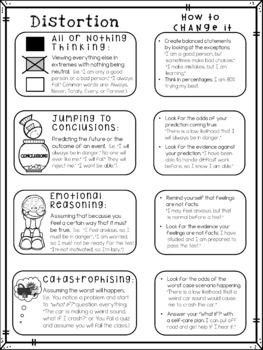Coping with Depression and Anxiety Through Exercise
Depression and anxiety are two common mental health disorders that affect millions of people worldwide. Both conditions can significantly impact a person’s quality of life, making it difficult to perform day-to-day activities and lead a fulfilling life. While medication and therapy are effective treatments, exercise is also a powerful tool in managing these conditions. In this article, we will explore the benefits of exercise for coping with depression and anxiety.
The Relationship between Exercise and Mental Health
Research has shown that regular exercise can have profound positive effects on mental health. When we exercise, our bodies release endorphins, often referred to as “feel-good” hormones. Endorphins interact with the receptors in our brain, reducing pain perception and triggering positive feelings similar to that of morphine. This natural compound provides a euphoric sensation and acts as a natural antidepressant.
Moreover, exercise increases the production of brain-derived neurotrophic factor (BDNF). BDNF helps in developing new nerve connections, enhancing brain health, and protecting against mental disorders. Alongside increasing BDNF levels, exercise decreases inflammation, improves sleep quality, and boosts self-esteem, all of which play a crucial role in managing depression and anxiety.
The Types of Exercise Beneficial for Depression and Anxiety
Various forms of exercise can help alleviate symptoms of depression and anxiety. Here are a few examples:
Cardiovascular Exercise: Engaging in activities that get your heart rate up, such as running, swimming, or cycling, can release endorphins and reduce stress levels.
Strength Training: Lifting weights or performing resistance exercises helps build muscle and boosts overall mood. The sense of accomplishment from reaching fitness goals can also improve self-esteem.
Mind-Body Exercises: Activities like yoga, tai chi, and Pilates focus on uniting the mind and body, promoting relaxation and mindfulness. These exercises can calm the mind, reduce anxiety, and enhance self-awareness.
Creating an Exercise Routine
Starting and maintaining an exercise routine can be challenging, especially when dealing with depression and anxiety. However, with a few helpful tips, it can become a manageable and enjoyable part of your life:
Start Slow: Begin with lighter activities and gradually increase intensity as your fitness levels improve. It’s crucial not to overwhelm yourself, as this can lead to frustration and demotivation.
Set Realistic Goals: Establish achievable goals for yourself. Breaking your exercise routine into smaller, manageable steps can lead to a sense of accomplishment and keep you motivated.
Find an Activity You Enjoy: Experiment with different types of exercise until you find something you genuinely enjoy. This will make it easier to stick to your routine and look forward to each session.
Make it a Social Activity: Exercising with a friend or joining a group class can provide social support and accountability. Having someone to share the experience with can make the process more enjoyable and increase your commitment.
Additional Tips for Coping with Depression and Anxiety
While exercise is an effective strategy to cope with depression and anxiety, combining it with other techniques can further enhance its benefits. Here are some additional tips:
Maintain a Balanced Diet: Eating a healthy diet can provide your body and brain with the necessary nutrients to function optimally. Focus on consuming fruits, vegetables, whole grains, lean proteins, and healthy fats.
Prioritize Quality Sleep: Adequate sleep is crucial for mental and emotional well-being. Establish a consistent sleep routine and create a calming environment conducive to a good night’s rest.
Practice Relaxation Techniques: Incorporate relaxation practices into your routine, such as deep breathing exercises, meditation, or progressive muscle relaxation. These techniques can help reduce stress levels and improve overall mental well-being.
Seek Professional Help: If your symptoms of depression and anxiety persist or worsen, it is essential to consult a mental health professional. They can provide specialized guidance and support tailored to your individual needs.
Conclusion
Coping with depression and anxiety can be challenging, but exercise can be a powerful tool in managing these conditions. Regular physical activity not only improves physical health but also enhances mental well-being by boosting endorphin levels, reducing inflammation, and increasing self-esteem. By incorporating exercise into your routine and combining it with other healthy habits, you can take significant steps towards coping with depression and anxiety, leading to a happier and more fulfilling life.


